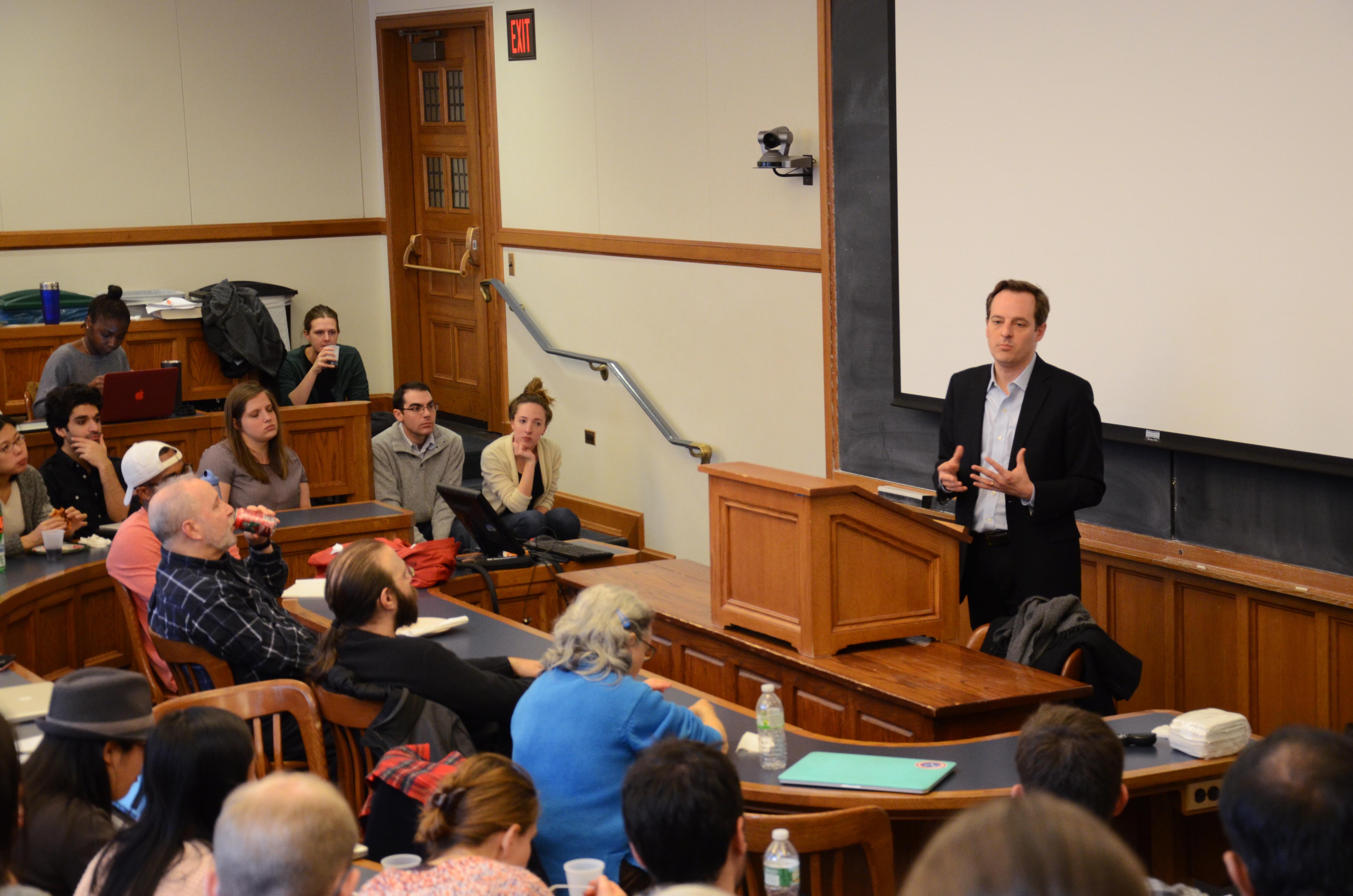
When Barack Obama was elected president in 2008, Pulitzer Prize-winning New York Times columnist Charlie Savage LAW ’03 thought his career was over: Savage had made a name for himself reporting on the lack of transparency in George W. Bush’s administration, and Obama had campaigned on the promise of making government more accountable.
“It looked like the War on Terror was over, and I’d have to find something else to do,” Savage told a crowd of around 50 students, professors and alumni at the law school on Monday. “Maybe I’d go cover the Chicago Cubs or something.”
But, as Savage said Monday of his new book, “Power Wars: Inside Obama’s Post 9/11 Presidency,” “Obama the change-maker would not last.” Instead, Savage explained, the Obama administration has continued many of the Bush-era surveillance policies that some say infringe upon citizens’ civil liberties. His book, which is just shy of 800 pages, describes these issues, as well as the players and situations that have shaped the Obama administration’s approach to domestic security.
Savage explained that much of Bush’s criticism came from the political left. These objections came in two forms: a rule-of-law critique and a civil-liberties critique. In the first, Savage said, Democrats felt that Bush’s policies violated the rule of law because they were largely enacted unilaterally and without congressional approval. In the latter, critics believed the administration’s extensive domestic surveillance was inherently wrong. Still, Savage said Obama has by and large continued these domestic security policies, building upon the legal framework of aggressive executive power Bush established.
“These two administrations with very different personalities end up coalescing on similar policies,” he said.
But Savage also outlined the stylistic differences between the Bush and Obama administrations. He said Bush and Cheney conducted themselves like CEOs, while the Obama White House is “the most lawyerly administration ever.” He credited the Obama administration for caring more about civil liberties than Bush did, but ultimately, he said, the American people should not have expected much change from the previous administration.
“You don’t have to be a right-wing person to know that ‘Hope and Change’ don’t carry much context,” he said.
Attendees interviewed said they found the talk interesting and informative. Marian Messing LAW ’17 said the issues Savage analyzed are highly complex, but that his book is able to articulate them so they can be understood.
Michael Eastman GRD ’15, who grew up in South Africa and worked as a human rights attorney there before attending Yale Law, spoke of his experience living under the apartheid system, adding that he believes civil liberties are crucial to a democracy.
“I grew up in apartheid South Africa. The apartheid government claimed to have rule of law but it’s not the rule of law you and I would recognize. It wasn’t based on equality, fairness or justice,” Eastman said. “We see here that a democratic society must be very careful that the phrase ‘rule of law’ means what a democratic society needs it to mean. To me, that includes civil liberties.”
Savage was a Knight Journalism Fellow at Yale while attending law school at Yale.







